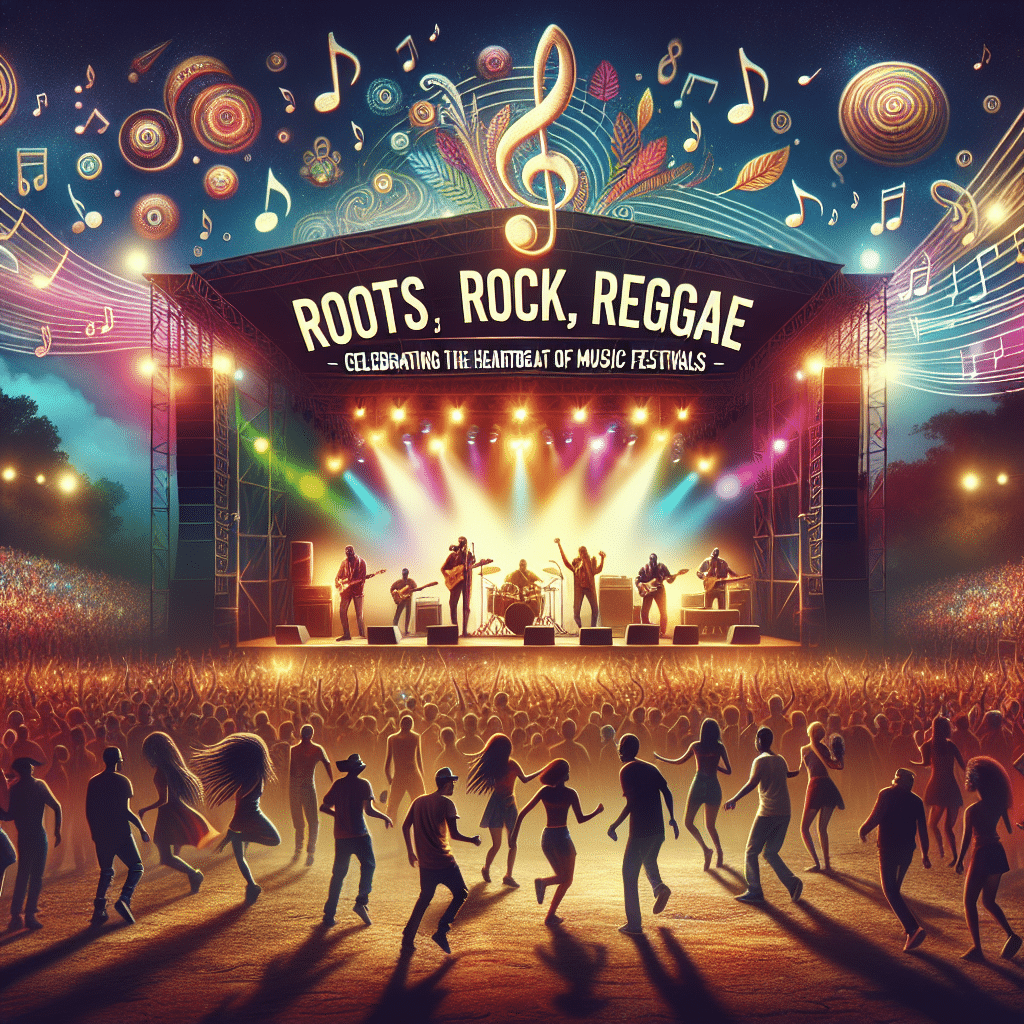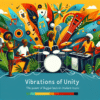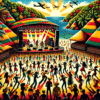Roots, Rock, Reggae: Celebrating the Heartbeat of Music Festivals

Roots, rock, reggae. These three words are not just a genre of music; they represent a cultural movement, a vital heartbeat of musical expression that echoes through music festivals across the globe. From the sun-soaked beaches of Jamaica to expansive fields in Europe and North America, reggae music has carved out a niche that continues to attract fans and musicians alike. Celebrating the essence of this genre at music festivals highlights not only its rich history and cultural significance but also its power to unite people from diverse backgrounds.
The Origin of Roots, Rock, Reggae
Understanding the celebration of roots, rock, reggae at festivals begins with a deep dive into its origins. Emerging from the streets of Jamaica in the late 1960s, reggae music is intrinsically linked to the experiences of everyday Jamaicans, representing themes of social justice and resilience. The genre evolved from earlier Jamaican musical styles such as ska and rocksteady, but it was the rich cultural heritage of the island that breathed life into reggae’s lyrical depth and rhythmic complexity.
Roots reggae, characterized by its deep bass lines and spiritual lyrics, often draws from Rastafarian beliefs, promoting themes of peace, love, and equality. Bob Marley, the genre's most renowned ambassador, brought reggae to a global audience, using his platform to promote messages of unity and resistance against oppression. His music continues to serve as a catalyst for change, resonating with people from all walks of life.
See Also: From Trenchtown to the Global Stage: The Journey of Reggae Music
From Trenchtown to the Global Stage: The Journey of Reggae MusicThe Significance of Music Festivals
Music festivals serve as a powerful vehicle for cultural exchange, and reggae has been at the forefront of such events. While many genres have distinct festivals, the beauty of roots, rock, reggae lies in its ability to transcend boundaries—both geographical and cultural.
Reggae festivals not only showcase established artists but also provide a platform for emerging talents from diverse backgrounds. The shared love for reggae music promotes a sense of community and an appreciation for cultural diversity. These gatherings are often infused with vibrant energy as attendees dance, sing, and celebrate together, fostering bonds that can last a lifetime.
The Role of Reggae Music Festivals
Celebrating Cultural Heritage
Reggae festivals play a vital role in preserving the heritage of this musical form. Events such as the “Rototom Sunsplash” in Spain and “Reggae Sumfest” in Jamaica offer attendees a unique opportunity to experience traditional Jamaican culture firsthand. From food stalls serving authentic Jamaican cuisine to art displays showcasing local artisans, these festivals provide a holistic view of the culture that birthed reggae music.
See Also: Vibrations of Unity: The Power of Reggae Beats in Modern Music
Vibrations of Unity: The Power of Reggae Beats in Modern MusicCreating a Platform for Social Change
Another key aspect of reggae music festivals is their potential to drive social change. Many festivals incorporate themes of activism, mirroring the core messages found in reggae music. Artists often use their performances to raise awareness about social issues, from climate change to systemic inequality. Events like the “One Love Festival” focus on humanitarian causes and encourage attendees to advocate for positive change in their own communities.
A Global Movement
While reggae music originated in Jamaica, its influence and popularity have spread worldwide, contributing to the creation of numerous international reggae festivals. The “California Roots Music and Arts Festival” in the United States and “Jamaica’s Reggae Island” bring together diverse music cultures, honoring the genre while fusing it with other musical styles. This cross-pollination expands the appeal of reggae and showcases its versatility, demonstrating that roots, rock, reggae is more than just a genre—it's a way of life.
The Experience of Roots, Rock, Reggae Festivals
See Also: Dancing Under the Sun: The Best Reggae Festival Locations for 2023
Dancing Under the Sun: The Best Reggae Festival Locations for 2023Atmosphere and Energy
The vibrant atmosphere of roots, rock, reggae festivals is unmatched. The pulsating rhythms of reggae music create an inviting space where people feel free to express themselves. From spirited dancers to soulful singers, attendees come together to create an unforgettable experience. The visual spectacle is also breathtaking, with colorful decorations, handcrafted goods, and the beautiful backdrop of nature often enhancing the ambiance.
Connecting with Others
Reggae music festivals also foster connections among attendees. Whether through shared dance moves, jam sessions, or simply bonding over a shared love for the music, these events cultivate camaraderie. People from different cultures and backgrounds come together to connect through the universal language of music, often resulting in lasting friendships and memories.
Conclusion: The Importance of Roots, Rock, Reggae in Music Festivals
Roots, rock, reggae is not just a genre of music; it embodies a movement that celebrates unity, love, and resilience. Its presence at music festivals serves as a reminder of the genre's rich historical background, cultural significance, and its unwavering spirit of activism. The continued celebration of roots, rock, reggae at festivals worldwide plays a critical role in preserving this vibrant art form while promoting cultural exchange and social justice. As we continue to gather in celebration of this powerful music, we not only honor the legacy of artists like Bob Marley but also forge new paths for future generations to enjoy and contribute to the reggae movement.
See Also: Vibrant Vibes: Experiencing the Essence of Reggae Festivals Worldwide
Vibrant Vibes: Experiencing the Essence of Reggae Festivals WorldwideFAQs
1. What defines roots, rock, reggae music?
Roots, rock, reggae is a genre of music characterized by its offbeat rhythms, syncopated basslines, and socially conscious lyrics. It often highlights themes of love, unity, and resistance against oppression.
2. How did reggae music originate?
Reggae music originated in Jamaica in the late 1960s, evolving from earlier forms like ska and rocksteady. It was shaped by the cultural experiences of everyday Jamaicans and is closely associated with the Rastafarian movement.
See Also: Jammin’ Through the Ages: Tracing Reggae’s Impact on Global Culture
Jammin’ Through the Ages: Tracing Reggae’s Impact on Global Culture3. What are some famous reggae festivals?
Notable reggae festivals include “Reggae Sumfest” in Jamaica, “California Roots Music and Arts Festival” in the United States, and “Rototom Sunsplash” in Spain.
4. Why are reggae music festivals important?
Reggae music festivals are essential for preserving the cultural heritage of reggae, providing a platform for social change, and fostering global connections among fans and artists.
5. Can reggae music influence social change?
Yes, reggae music has a profound ability to address social issues. Many reggae artists use their performances at festivals to promote messages of activism and social justice, inspiring listeners to take action.
See Also: From the Islands to the World: The Evolution of Reggae Music
From the Islands to the World: The Evolution of Reggae MusicIf you want to know other articles similar to Roots, Rock, Reggae: Celebrating the Heartbeat of Music Festivals you can visit the category Reggae.
